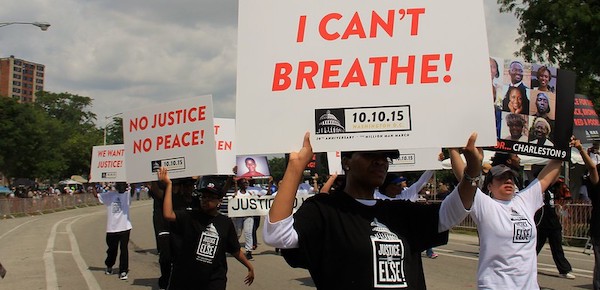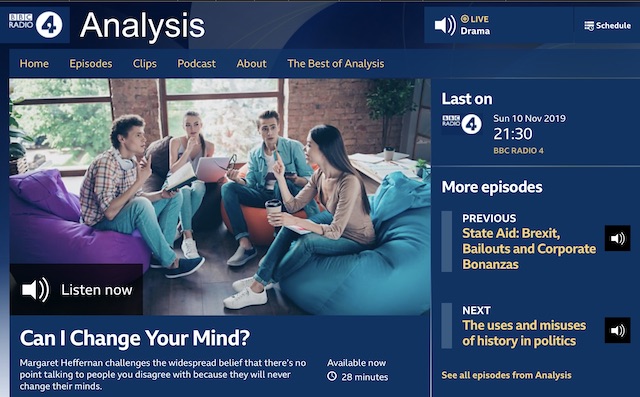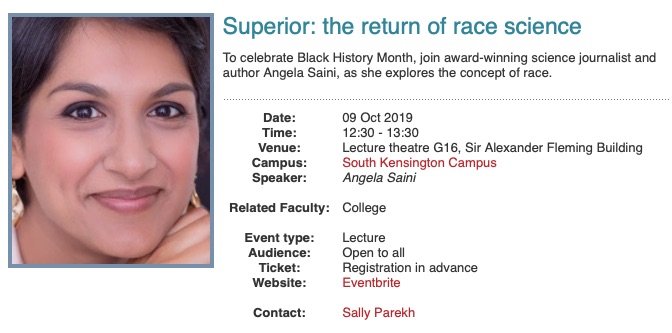Eradicating the impact of racism at Imperial requires us all to play our part, write Kani Kamara [Head, Equality, Diversity & Inclusion Centre] and Stephen Curry [Assistant Provost (EDI)]
As we join the scientific community to address the deadly threat of the coronavirus pandemic, events in America in the past week have made us starkly aware that humanity faces another enormous challenge. They have brought to the fore the racism faced by black people, not just internationally but also here in the UK.

While anyone who saw the footage of the killing of George Floyd or the police violence meted out to protestors will have been horrified, it is clear from the reactions of many of our black staff and students that these events have resonated especially strongly with them. They have spoken out eloquently and powerfully. The news from across the Atlantic stirs such visceral responses because it is yet another reminder of how racism affects black communities – and other ethnic minorities – in Britain every day.
The concern isn’t just fear of racist mistreatment by the police, although black people are far more likely than whites to be stopped and searched in London, or to die in police custody. Such incidents affect only a minority of black people. Rather, it is the cumulative effect of less visible stresses of stereotyping – the micro-aggressions (“Where are you really from?”), the promotions denied, the anxieties of racial harassment – that nevertheless accumulate in the statistics for education, health or employment. Anyone who cares to seek out the numbers will see that life in Britain is still permeated by racial inequality.
The statistics for Imperial College, currently being unearthed and examined for the first time by our Race Equality Charter (REC) self-assessment team, show us that as an institution we too are permeated by racial inequality. Progress is being made, but across the board – in student admissions, professorial appointments, in the career progression of professional and technical staff, and in surveys of staff and student experiences of life on our campuses – a story of under-representation and unfairness is told and retold.
We are resolved to be clear-sighted about the scale of the challenge that we face and our REC submission, due in January 2021, will be accompanied by a concrete plan of action.
But of course there is no need to wait until then to take action. And nor should we expect Black, Asian or Minority Ethnic members of our community to bear the heavy responsibility of combating racism at Imperial. As our EDI Strategy makes plain, this is a task for all of us.
For white people, who are clearly in the majority at Imperial, it can be difficult to know how best to help. In part this is because we are unlikely ever to have experienced being racialised. That is our ‘white privilege’. We may well have other troubles and traumas in life, but racism is not one of them. Many white people may feel unsure or uncomfortable in broaching the topic of racism, but we can learn to become active allies to black staff and students and other people of colour.
To help with that, our EDI Centre has put together a webpage with guidance and resources to help people understand how to be a white ally. As well as practical suggestions, it has a reading list of articles and books and links to videos. We hope this will be useful to anyone keen to join the fight against racism but uncertain where to start.
These are steps forward. We know we still have a long way to travel. We have been brutally reminded of just how urgent this work is. Our commitment to inclusion and respect at Imperial remains undimmed and extends to all staff and students who carry the burden of inequality. But we will only lift that burden if each and every one of us knows how to stretch out a helping hand.

